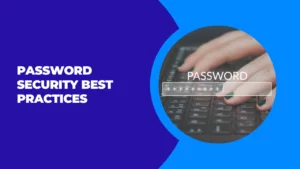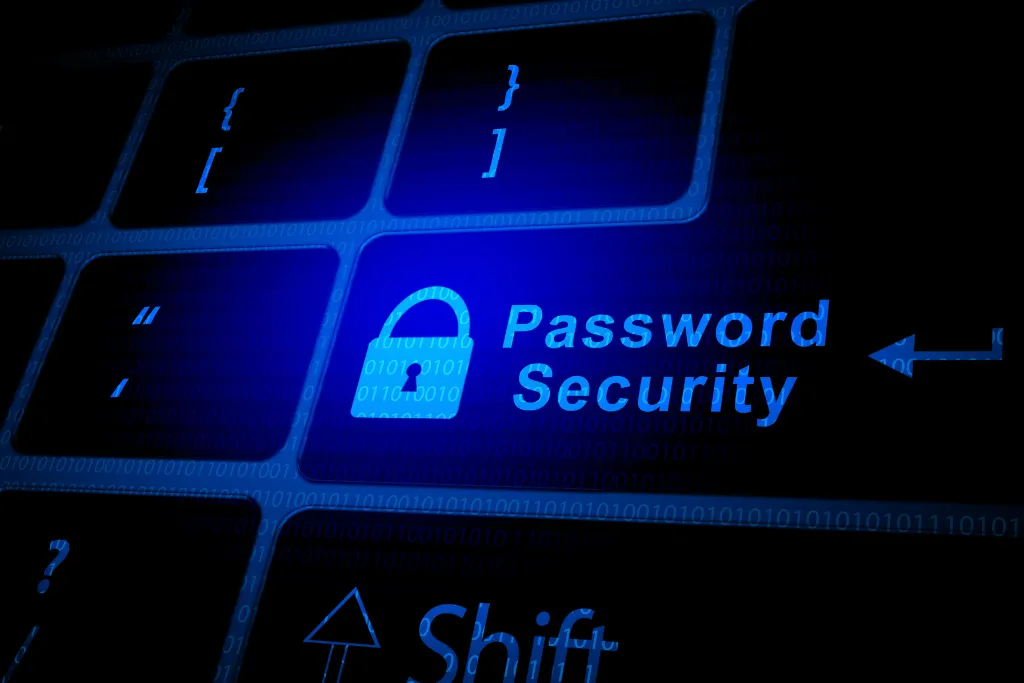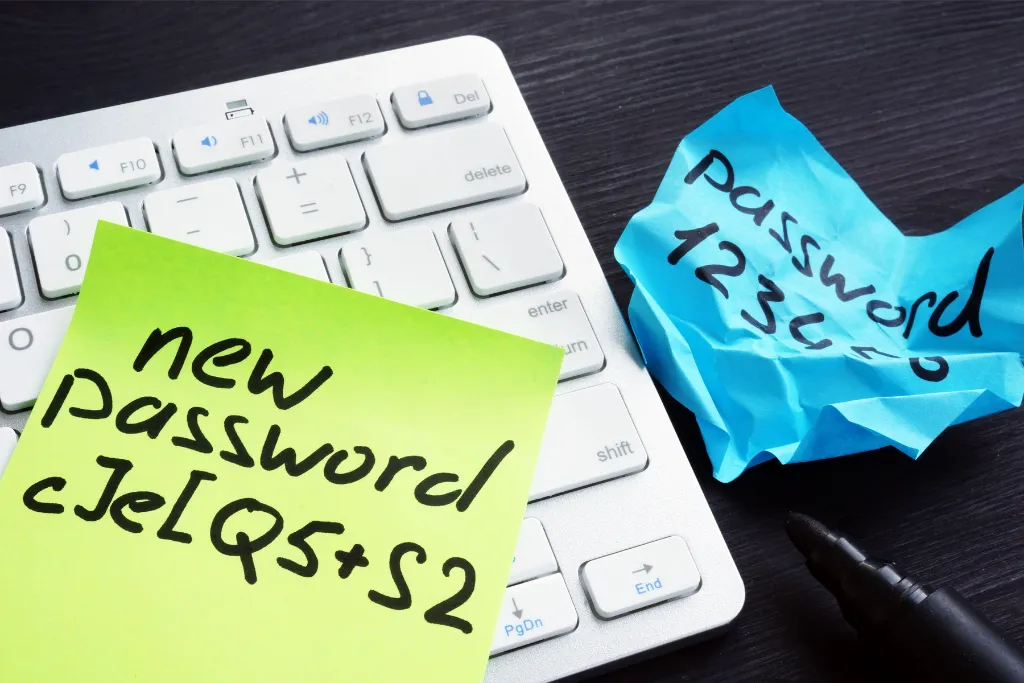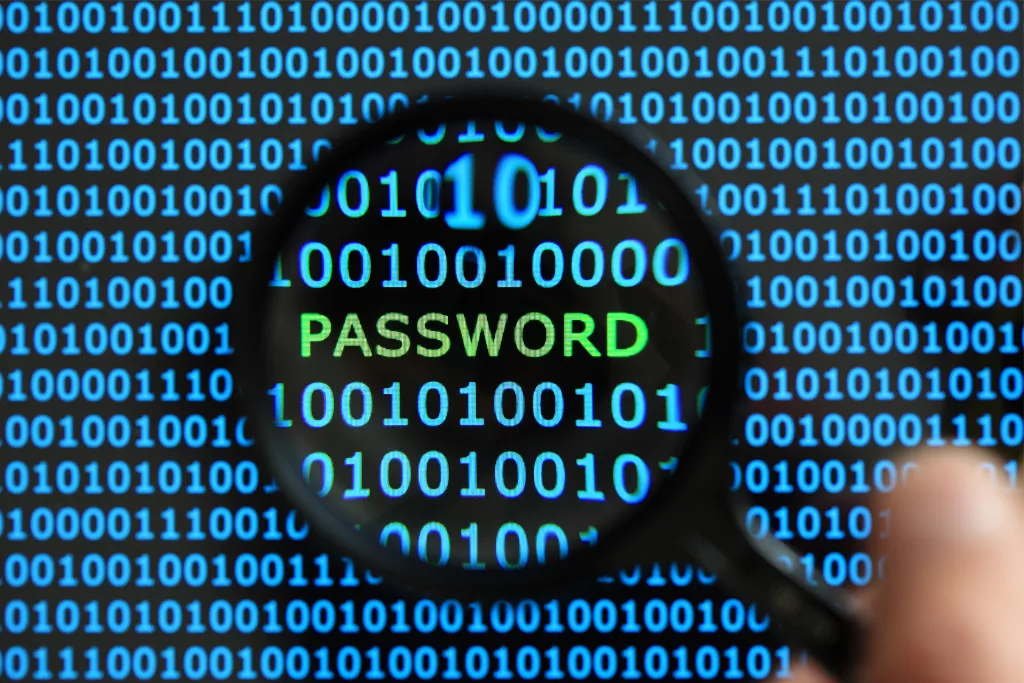Physical Address
304 North Cardinal St.
Dorchester Center, MA 02124
Physical Address
304 North Cardinal St.
Dorchester Center, MA 02124

As we approach the year 2024, technology continues to evolve at a rapid pace. Unfortunately, so do the cyber threats that come with it. It’s more important than ever to ensure that our online security is up to par and our passwords are unbreakable.
In this post, we will discuss why password security is crucial in today’s world and what you can do to protect yourself from potential threats. From creating strong passwords using best practices to utilizing tools like password managers and multi-factor authentication, we’ve got you covered.
We will also answer some common questions, such as when you should change your password and whether it’s safe to write down your login credentials. Stay ahead of the curve and keep your passwords secure with our expert tips.

The ever-evolving cyber landscape necessitates stronger password security measures. In 2024, passwords will continue to serve as the primary line of defense against unauthorized access, making their enhancement crucial for protecting sensitive data.
With cyberthreats constantly evolving, password security has become more important than ever before. In the digital age, ensuring password security remains an ongoing concern. By understanding the context of password security in 2024, individuals and organizations can stay prepared and safeguard themselves against potential breaches.
Cybercriminals employ advanced techniques to compromise passwords, utilizing malware and phishing attacks to target unsuspecting individuals. Data breaches expose login credentials, increasing the risk of password compromise. Social engineering tactics manipulate users into revealing their passwords, while the dark web provides a platform for buying and selling stolen passwords.
As cyber threats continue to evolve, it is imperative to stay vigilant and prioritize password protection. Enhancing password security is crucial in today’s internet landscape, where passwords serve as the first line of defense against unauthorized access. By understanding the evolving tactics of attackers, individuals and organizations can better safeguard their sensitive information.

Protecting your online accounts with strong passwords is crucial in today’s digital age. Stolen passwords can lead to identity theft and financial loss, while weak passwords make it easier for cybercriminals to gain unauthorized access. Implementing password security best practices is essential for safeguarding personal and sensitive information.
Stolen passwords have severe implications, granting cybercriminals access to sensitive data and personal information. The impact of a single compromised password is amplified by password reuse, increasing the vulnerability of multiple accounts.
Unauthorized access to email accounts can serve as a gateway for further cyberattacks, while stolen passwords can enable fraudsters to engage in illicit activities. The consequences of stolen passwords are long-lasting and challenging to recover from.
To safeguard against these risks, it is crucial to prioritize password protection and implement best practices to ensure information security.

Passwords can be compromised through various hacking techniques. Brute force attacks crack weak passwords, while keylogging software records keystrokes to capture login credentials.
Dictionary attacks systematically attempt commonly used passwords, and credential stuffing involves using stolen usernames and password combinations on different accounts. Social engineering tricks individuals into revealing their passwords.
Common hacking techniques include brute force attacks, where hackers systematically try all possible password combinations. Keyloggers silently record keystrokes to capture passwords, while dictionary attacks use precompiled lists of common words and phrases to guess passwords.
Phishing emails trick individuals into revealing their login credentials, and social engineering manipulates individuals into sharing their passwords. It is important to be cautious of these hacking techniques and take steps to protect oneself.
Utilizing strong passwords, staying vigilant against suspicious activity, and employing tools like password managers can greatly enhance password security and help prevent unauthorized access.
Creating strong and unbreakable passwords is crucial for protecting against cyberattacks in 2024. By using unique passwords for different accounts, you minimize the impact of a single compromise.
To enhance password strength, consider using a combination of lowercase and uppercase letters, numbers, and special characters. Passphrases, which are longer and consist of multiple words, can create strong and memorable passwords.
Additionally, regularly updating your passwords adds an extra layer of security to your online accounts. Remember, strong passwords are the first line of defense in safeguarding your information in this rapidly evolving digital landscape.
When it comes to strong passwords, there are a few best practices that can greatly enhance your password security. One of the most crucial tips is to use a mix of uppercase and lowercase letters, numbers, and special characters. This combination adds complexity to your passwords and makes them harder for hackers to crack.
Additionally, it is important to avoid using common words or personal information, as these are easy to guess or obtain through social media or other means. Creating long passwords is also recommended, as longer passwords are more difficult to crack using brute force attacks. Regularly updating your passwords adds another layer of security, as it helps protect against potential compromises.
Lastly, consider using a password manager to generate and store complex passwords securely. These tools can help you create unique and strong passwords for all your accounts, without the need to remember them all.
Password security can be greatly enhanced with the help of various tools. Password managers, like LastPass, provide secure storage and password generation capabilities, reducing the risk of weak or reused passwords.
Two-factor authentication (2FA) adds an extra layer of security by requiring a second piece of information, such as a phone number or fingerprint, in addition to the primary password.
Antivirus software can detect and prevent password-stealing malware, while biometric authentication methods, like facial recognition, offer enhanced security. Additionally, single sign-on solutions reduce the need to remember multiple passwords, streamlining the login process.
Password managers play a crucial role in enhancing password security. They securely store and organize passwords, ensuring they are protected from hackers. Moreover, these tools generate strong, unique passwords for each account, eliminating the need for users to come up with complex passwords themselves.
By simplifying the process of logging into multiple accounts, password managers save time and effort. Additionally, they provide protection against keyloggers and phishing attacks by autofilling login credentials, minimizing the risk of falling victim to malicious activities. Furthermore, password managers can sync across devices, making passwords accessible wherever users go.
Multi-factor authentication is a crucial aspect of password security. By adding an extra layer of protection, it significantly reduces the risk of unauthorized access to your online accounts. This method combines something you know (such as a password) with something you have (like a text message code), making it more difficult for hackers to gain access.
Multi-factor authentication is recommended by NIST as a best practice for securing sensitive data. With this added security measure in place, cybercriminals are far less likely to breach your accounts. Protect yourself and your information by implementing multi-factor authentication.
Changing your password periodically is crucial for maintaining security. It is recommended to change passwords after a data breach to prevent unauthorized access. If you suspect your password has been compromised, changing it immediately is essential. Regular updates reduce the risk of password spraying and credential stuffing attacks. Adding an extra layer of protection, change your password every few months.
When it comes to preventing potential password theft, there are several best practices you can follow. One of the most important steps is to create a strong password that includes a combination of lowercase letters, uppercase letters, numbers, and special characters.
This makes it harder for hackers to guess or crack your password using brute force techniques. Additionally, it’s crucial to avoid using common words or personal information in your password, as these can be easily guessed or targeted in dictionary attacks.
Another important aspect of password security is being cautious of phishing attempts. Hackers may use social media or other means to trick you into revealing your password. It’s important to always verify the authenticity of any requests for login credentials and never provide your password or other sensitive information unless you are sure it is legitimate.
Using a password manager is also a highly recommended practice for preventing potential password theft. Password managers like LastPass securely store your login credentials and can generate unique passwords for each of your accounts. This ensures that even if one of your passwords is compromised, your other accounts remain protected.
Finally, regularly updating your antivirus software is crucial for protecting against malware that can steal your passwords. Malicious software can monitor your keystrokes or access your saved passwords, so keeping your antivirus software up to date is an essential part of password protection.
By following these best practices, you can significantly reduce the risk of potential password theft and enhance the security of your online accounts.
Writing down your login credentials is generally not recommended. However, if you must, keep them in a secure place. Storing passwords electronically or in an easily accessible format increases the risk of unauthorized access.
Consider using passkeys or passphrase techniques to create secure yet memorable passwords. Avoid labeling them as passwords or associating them with specific accounts.
In conclusion, password security is a crucial aspect of protecting your online presence and personal information. With the evolution of cyber threats, it is essential to stay updated with the best practices for creating unbreakable passwords.
Using a password manager and implementing multi-factor authentication are effective tools to enhance password security. It is also important to regularly change your passwords and be cautious of common hacking techniques.
While writing down your login credentials may seem convenient, it is not safe. Remember, safeguarding your passwords is a proactive measure that can save you from the potential implications of stolen passwords. By following these password security best practices, you can ensure the safety of your online accounts and data.